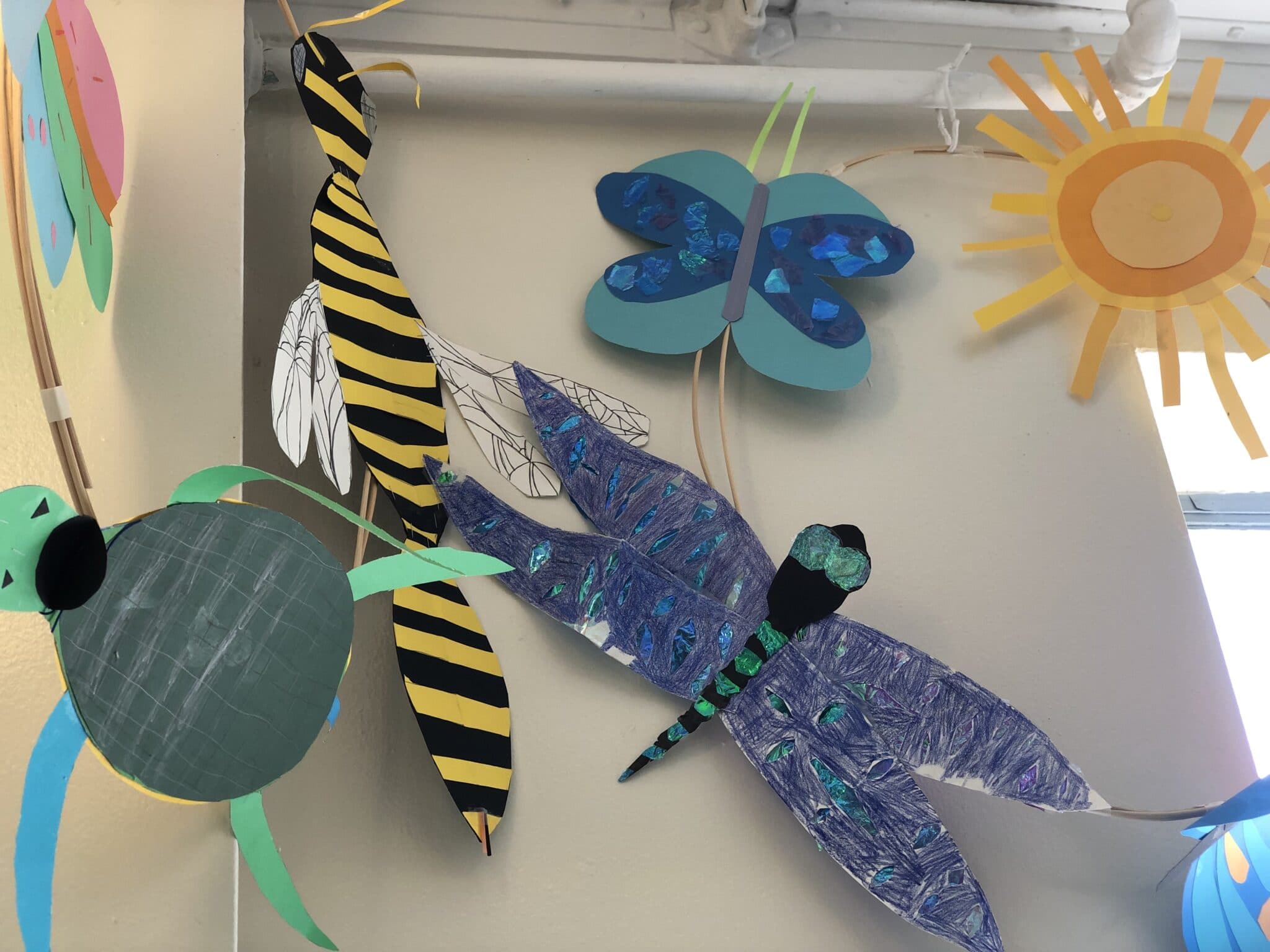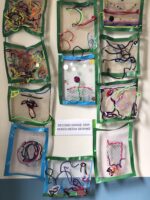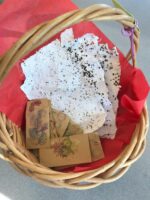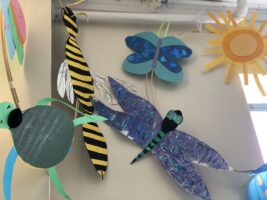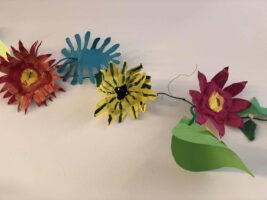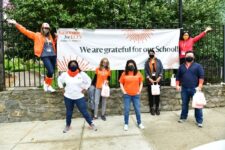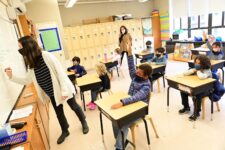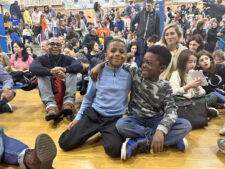Earlier this month, we sat down with members of Fieldston Lower’s faculty to discuss the upcoming Spring Festival. The festival — which typically occurs each May — has been postponed for several years due to the COVID-19 pandemic and inclement weather. Despite running into rainy weather again this year on the originally planned date, the festival is currently rescheduled for the last week of classes.
The Spring Festival — traditionally a celebration of music and arts — is an opportunity for students to share the creative projects they’ve been working on for the better part of the spring with friends and family. Fieldston Lower Music teachers, Blake Rowe and Bárbara Martinez, Art and Social Studies teachers, Corinne Farkouh and Kate Elliot, and Shari Fischberg, and Fieldston Lower Principal Joe McCauley have been working together to organize a memorable day for students and families alike.
“This year’s Spring Festival is a celebration of the resilience, creativity, and flexibility of our students and of our Music, Art, and Social Studies Workshop teachers,” explains McCauley.
The music program had to completely transform and adapt. As you can imagine, singing with masks on isn’t ideal, and for a while, students weren’t allowed to sing indoors. “Since the beginning of the pandemic, these teachers have had their whole program upended. Last year they lost their classroom spaces, had to work outside and bring supplies to classrooms, and on top of that, they were tasked with supporting the academic program and lunch. Despite all the change and upheaval, they found ways to inspire children through art and expression,” adds McCauley.

Blake Rowe — an accompanist turned Music teacher — has been working for Ethical Culture Fieldston School since 1986. He has witnessed many changes and difficult times, but nothing compares to the challenges posed by the pandemic. Music and art classes have been reorganized entirely to mitigate these challenges. Due to physical distancing requirements and the inability to play certain instruments because of masking guidelines, the teachers at Fieldston Lower have had to reach beyond even their own vast creative capacities to think up solutions.

“In more normal times it’s an applied program. We teach music by making music. In the younger grades, we sing songs and teach specific movements for specific places in a song, which later we can replace with percussion instruments so they get a sense of orchestration and timing. That’s the early experiential work,” Rowe explains. “I think a big part of it was letting go of our own expectations to try to maintain something valuable. It was going to stress us out and stress the students out if we tried to fit everything in.”
Historically, after Spring Recess, each grade begins preparing a song that they will perform at Spring Festival. This year is special because Rowe and Martinez decided to bring back the tradition of 1st and 2nd Grade original songwriting in celebration of the event.
“The original songs are a really great project. It teaches so many aspects of what makes a song a song,” explains Rowe. “We go through a whole process where the class decides what the subject of the song will be, and then we gather as much material about the subject from them. I typically organize it into a lyric structure. Is this a bridge? A chorus? Is there a rhyme? Then we go back to class and students volunteer to sing a line. So it is up to them to come up with how to sing a particular line. I will listen and write the notes that they are singing. And then after that, I have to figure out a piano part that fits that melody.”
“It’s basically magic,” adds Martinez. “The way that Blake has this system down. It really is such a respectful process and it honors the students’ creativity. The easiest thing would be to take what a student says or sings and make it into what you want it to be, but instead, he gives himself this challenge. It’s a really beautiful illustration of what music can be.”
On the day of the festival, students will climb the risers and perform their original songs to their peers and families. The students have written songs about a range of topics — one class even wrote a song entirely about gummy bears!

In addition to the musical performances, student art will be on display during Spring Festival. Much like music programming, art classes have shifted tremendously since the onset of the pandemic.
“I’ve been excited to find ways to contribute to the festival with my classes. Schoolwide events are a wonderful time to share and celebrate one another. It is exciting to be able to safely do this outdoors with families this year,” says Elliot.
Spring Festival’s artistic theme revolves around nature, sustainability, and taking care of our planet. Farkouh explained that each grade contributes to Spring Festival in a different way that connects to this theme: “The 2nd Grade created spring flowers from recycled lunch bags and lunch boxes, while the 3rd Graders made handmade wildflower seed paper, made from recycled copy paper. This unique seed paper is meant to be planted at home or in a special place for every Fieldston Lower family. On the sidewalks, our 4th Graders plan to use chalk to draw spring flowers and leaves to welcome everyone to the celebration, and will create a ‘Pollinators and Creatures in Flight’ exhibit that will hang on the fence.”
This year in Social Studies Workshop, students learned about tree identification and also discussed the many uses of trees as a natural resource. It was especially important for students to experience the process of making paper to understand what goes into producing a material they use every day.
“Thinking about reuse and how to contribute to the Fieldston community has been part of this year’s Social Studies curriculum, so using discarded materials to beautify the event fits the theme well,” adds Elliot.
The return of the Spring Festival feels like a return to a typical academic year in some ways, but in others, it honors the hard work and adaptability of the Fieldston faculty.
McCauley is in awe of their collective accomplishments. “Now, music happens outdoors regularly; it has been wonderful hearing the children singing so often outside my window. Earlier in the year, our students transformed an outdoor fence into a massive loom so they could even weave textiles. When safety protocols are lifted, I anticipate a newfound love of outdoor creativity to continue for many years to come,” he says. “Out of loss comes many opportunities for healing and joy, and these teachers truly did that. Our students taught us that art and expression can happen anywhere.”
